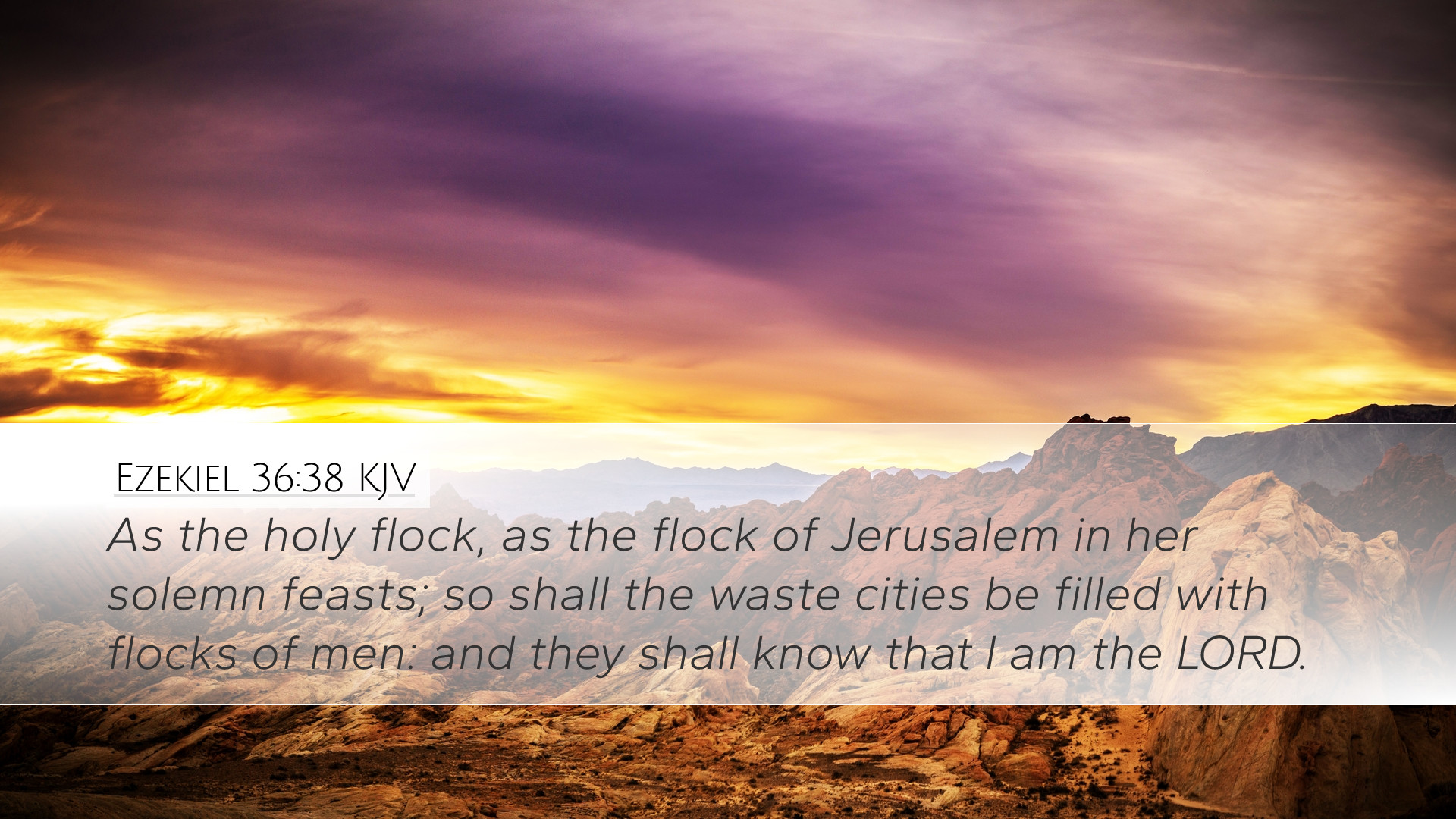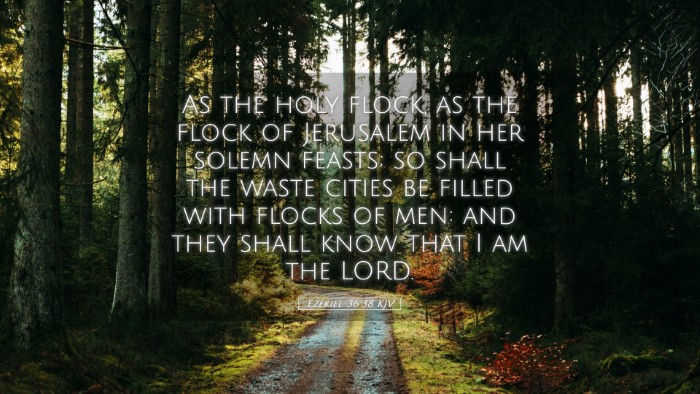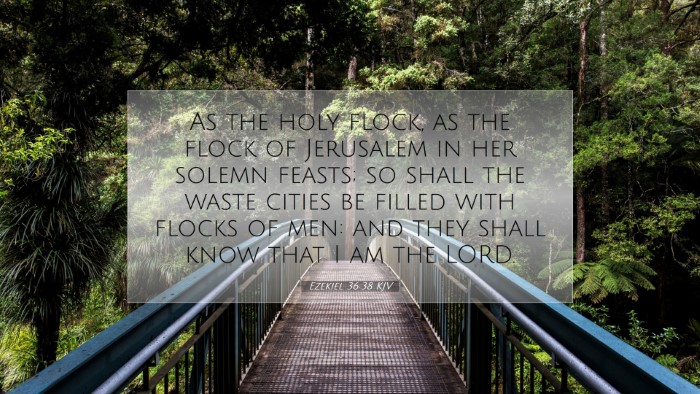Ezekiel 36:38 Commentary
Bible Verse: "As the holy flock, as the flock of Jerusalem in her solemn feasts, so shall the waste cities be filled with flocks of men: and they shall know that I am the LORD." (Ezekiel 36:38, KJV)
Context and Historical Background
Ezekiel's prophecies emerged during Israel's Babylonian Exile, a critical period when the nation was grappling with its identity and future. This chapter is part of a larger narrative where God assures Israel of restoration and renewal after a period of judgment.
The imagery of "the holy flock" suggests a return to a state of divine favor, similar to the time when Jerusalem thrived and the temple worship was central to the Israelites' spiritual life.
Thematic Analysis
The core themes of this passage are restoration, divine assurance, and the intimate relationship between God and His people.
The mention of flocks represents not only the physical restoration of Israel but also a spiritual revitalization characterized by peace, security, and community.
Insights from Matthew Henry
Matthew Henry emphasizes the symbolism behind God's promise of restoration. He explains that the "waste cities" represent spiritual barrenness and desolation.
Just as the flocks around Jerusalem signify God's presence and blessings, so too will the restoration of these cities symbolize the reviving of Israel's spiritual health.
Henry further notes that God’s intentions are for His people to recognize Him as their Lord, leading to a deepened faith and renewed trust in His provision.
Analysis by Albert Barnes
Albert Barnes highlights the contrast between the past condition of sin and the future hope of deliverance. He points out that Ezekiel is drawing parallels
between the joyous celebrations of Jerusalem’s feasts and the forthcoming joy in repopulated cities.
Barnes stresses that this prophecy serves to encourage the Israelites by reminding them of God’s unwavering commitment to His covenant promises, ensuring that their future will be prosperous and filled with His abundant presence.
Commentary from Adam Clarke
Adam Clarke elaborates on the metaphor of the flock, suggesting that it represents both the individual believers and the community of faith.
He points to the importance of unity and collective worship as fundamental to understanding this prophecy.
Clarke identifies a theological dimension where the gathering of people signifies a physical manifestation of divine sovereignty,
leading to the ultimate recognition of God's authority as "the LORD."
This encourages the faithful to see their restoration not merely as a return to their land but to a vibrant worship life.
Practical Implications for Today
For pastors and theologians, Ezekiel 36:38 serves as a powerful reminder of God’s capacity to restore and revitalize His people.
It challenges leaders to cultivate environments where spiritual life can flourish, encouraging congregations to see themselves as part of God's transformative work.
- Hope in Restoration: Just as the desolate cities will be filled, congregations today are invited to trust in God's restorative power in the face of adversity.
- Community and Worship: The communal aspect of the flock highlights the significance of gathering together in worship and fellowship.
- Witness to the World: The restoration of believers' lives serves as a testimony to the world, showcasing God's glory and sovereignty.
Conclusion
Ezekiel 36:38 encapsulates a divine promise that extends beyond the historical context of ancient Israel.
It challenges believers in every generation to embrace hope, recognize the importance of community, and understand their identity as part of God’s flock.
Theologians and pastors are encouraged to draw upon this rich text to inspire a vision of restoration, reminding congregations that God is actively working to fill their lives and communities with His presence.


